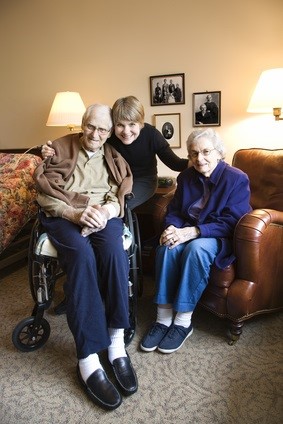So, your family has decided it might be time for Mom to move to an Assisted Living Facility. How do you find a good quality ALF that fits Mom’s needs and budget? How do you know which facilities have good ratings and provide quality care? Where to begin?
There are more and more assisted living options, making them all the more confusing to navigate. Because of this, services have sprouted up to assist families in reviewing eldercare options. Geriatric care managers have been helping families with this process for many years. We’ve helped hundreds of families with finding unique solutions to fit their needs, understanding costs and benefits programs, and helping the elder make a positive, dignified transition. You can read a great example story of the difference a care manager can make with the process in “A Daughter’s Experiences in Eldercare“.
Nowadays, there are other services that offer help with this process as well. Typically, they are single purpose companies/individuals (in other words, they don’t offer a range of eldercare services/options, assessment, etc., but only help specifically with choosing and moving to assisted care or retirement facilities). Here’s what you need to know/ask when evaluating who you might want to help you with the process of choosing an assisted living:
Who’s paying?
A geriatric care manager is an expert that you pay for personalized advice. Yes, that means the cost is typically out of your/your parent’s pocket, but it also means that you are the client. The care manager’s goal is to provide you the best options, and even find ways to possibly save you money, through negotiations, unique solutions and benefits programs. We find that most care management clients using our services for ALF transitions save more money in the process than they spend on our fee.
Most “ALF placement” services will tell you that there is no cost to you. This means they are typically paid by the assisted living communities when someone moves in (or through other similar arrangements). While this may seem like a cost-effective option, consider the possible limitations. Will you be shown all possible facilities or will smaller facilities or lower cost options who won’t pay a fee be excluded? Can the person negotiate on your behalf or help you understand benefits that may assist with costs? Moving into an assisted living facility is a very costly (financially and emotionally) transition, and sometimes saving a fee will cost more in the long run.
What are you getting?
What is the company’s background and the person’s experience and education? Can they tell you the ins and outs about the facility? Do they have a solid educational foundation in psychosocial aspects of aging? Do they have experience in counseling elders and families through various transitions? Do they have expertise in doing a comprehensive assessment to ensure the facility is appropriate? What about other alternatives for eldercare (for example, could they help if you want to explore in-home care, at least temporarily)? Do they understand Medicare, Medicaid, VA benefits, etc.? Check out our Aging Wisely team’s experience.
Understand what you’re getting and how involved the person will be at different stages of the process. If you need help with the moving process and ongoing services (post-transition help, advocating at the facility, check-up visits), can the company assist?
We offer more details on evaluating an assisted living facility and getting help with the process here, along with our free Choosing the Right Assisted Living Checklist. Contact us at 727-447-5845 or online for more information and help navigating your eldercare choices.
Aging Wisely…your family’s advocate!

 Popular Downloads
Popular Downloads


 Get Our Newsletter!
Get Our Newsletter! Mission Statement
Mission Statement

